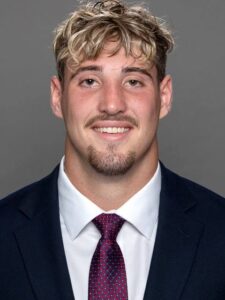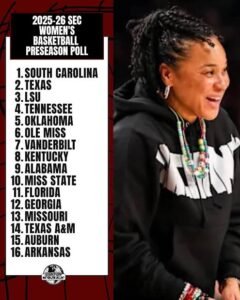Breaking news: Texas tech head coach has decommit a 5-star player from the team due to his….

The New Mexico transfer continues to pace this Texas Tech roster. The big man is an elite rim protector, stellar rebounder, and emerging scorer. He was fantastic on Saturday, scoring 20 points while grabbing 16 rebounds against a talented Arizona frontcourt.

Cincinnati
Jizzle James: James has been mired in a shooting slump, making only one of his 17 three-point attempts in league play, but the sophomore guard continues to be a key cog to the Bearcats roster. He’ll be tasked with slowing down Texas Tech ball handler Elijah Hawkins while also navigating a physical defense.
When Arfin Lodhi showed up on the campus of Texas Tech University, U.S. President John F. Kennedy had proposed a joint mission to the moon, a new daytime serial called “General Hospital” had just debuted and the U.S. Postal Service had introduced a novel idea: ZIP Codes.

It was 1963, and Texas Tech, or Texas Technological College as it was known at the time, was observing its 40th anniversary. There was some angst among the 12,000-person student body over incendiary topics like civil rights in this country and war in another country, Vietnam, a place far removed from West Texas.
Lodhi was a Pakistan native wrapping up his doctoral thesis at the University of London. His first order of business upon completing his studies would be securing a job. His hope was to land one in the United States, preferably at an institution of higher learning, where he could learn about ongoing research.
He mailed letters of inquiry to a handful of schools, including Texas Tech.

He soon heard back from Henry Thomas, chairman of the physics department. After some back-and-forth communication, Thomas and Lodhi reached an agreement of sorts.
If Lodhi successfully defended his thesis and earned the degree, Texas Tech would extend to him an offer to join the department’s faculty as an assistant professor. The terms came via a letter through the U.S. Postal Service, and Lodhi sent his acceptance the same way. If it worked out, the only remaining hitch would be procuring the proper type of work visa for Lodhi.
That issue was resolved, although it ultimately required help from the U.S. attorney general and Lodhi working on a project funded by the U.S. Defense Department.

“It took some time,” he remembered. “More than they anticipated. I came a little bit later in the fall semester in 1963. They received me at the airport and brought me to the department. I did some paperwork in the afternoon, and then they took me around the town and got me an apartment to stay in. It was a good welcome.”
Six decades later, almost everything has changed.
Texas Tech University became the school’s new name in 1969, despite some bumps and pushback along the way to its approval. The physics department also has expanded, adding the discipline of astronomy to its portfolio in 2016.
And Lodhi, whose official title is research professor, is still here. While he has reduced his in-class responsibilities, he still enjoys the opportunity to engage with and learn from students.
“Dr. Lodhi’s longstanding dedication to students and the university community exemplifies the commitment and passion that defines Texas Tech University,” said university President Lawrence Schovanec. “We are deeply grateful for his enduring contributions and proud to honor this remarkable milestone.”
His impact has been felt at numerous levels throughout his decades of service.

“I feel that with his guidance and mentorship, I was able to pave my way into research and graduate studies,” said Hira Farooq, who earned her doctorate in 2020 and now is a lecturer in the department. “He helped and advised me in my career and research. He also recommended me for different positions during my career path.”
Lodhi has simply done what he believed he was meant to do: teach, inspire and challenge students to reach their potential.
“The decades of dedication and service Dr. Lodhi has given to the university, college and the Department of Physics & Astronomy is truly remarkable,” said Tosha Dupras, dean of the College of Arts & Sciences. “In the ever-evolving world of higher education, someone giving their all to one institution for six decades is unheard of. The College of Arts & Sciences is so grateful for the time Dr. Lodhi has spent here and the impact he made on the lives of so many students.”
None of it would have happened without Lodhi’s perseverance during his first days on campus. His area of expertise was nuclear physics, an important field in the early stages of the U.S.-Soviet Cold War. As he looked around, though, he found not a lot of opportunity to expand his research. Then there was Lubbock, which was a dramatically different place from London.
It wasn’t the strongest of endorsements when a fellow faculty member took him on a tour of the city, which focused on a newly developed commercial artery, 50th Street, which was home to retail ventures such as Monterey Center and Caprock Center.





